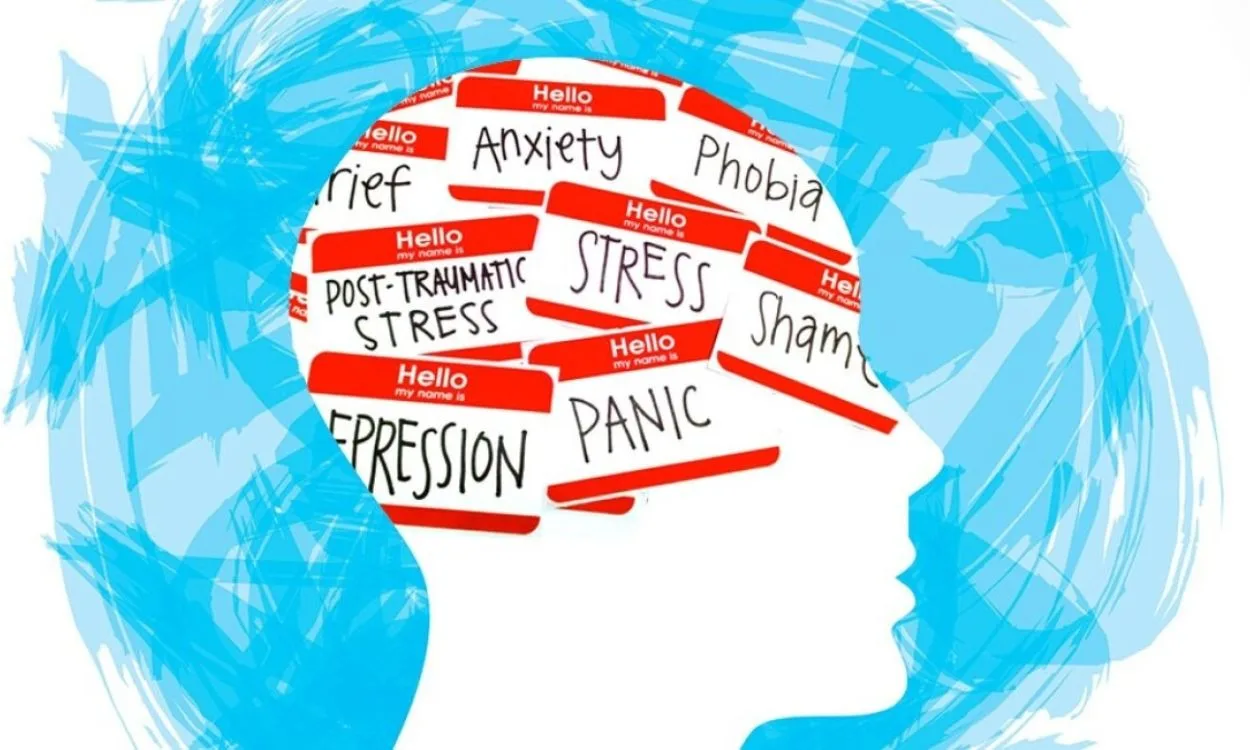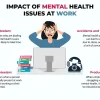What are some stigma and misconceptions surrounding mental health?
Mental health is a topic that is often surrounded by stigma and misconceptions. These misconceptions can prevent individuals from seeking help, understanding the true nature of mental health conditions, and supporting those who may be struggling. In this article, we will explore some common stigmas and misconceptions surrounding mental health.
Stigma surrounding mental health:
- Mental health is a sign of weakness: One of the most common stigmas surrounding mental health is the belief that it is a sign of weakness. This misconception can prevent individuals from seeking help and can lead to feelings of shame and guilt.
- Mental health issues are not real illnesses: Another misconception is that mental health issues are not real illnesses, but rather a result of personal flaws or character weaknesses. This belief undermines the severity and legitimacy of mental health conditions.
- People with mental health issues are dangerous: This stigma perpetuates the idea that individuals with mental health issues are violent or unpredictable. In reality, the majority of people with mental health conditions are not violent and are more likely to be victims of violence than perpetrators.
- Mental health is a personal failing: Many people believe that mental health issues are a result of personal failures or a lack of willpower. This stigma can make individuals feel ashamed or embarrassed about their mental health struggles, preventing them from seeking the help they need.
Misconceptions surrounding mental health:
- Mental health conditions are rare: In reality, mental health conditions are quite common. According to the National Institute of Mental Health, approximately one in five adults in the United States experiences a mental illness in any given year.
- Only certain demographics are affected by mental health issues: Mental health issues can affect individuals of any age, gender, or background. It is not limited to any specific demographic group.
- Seeking help is a sign of weakness: Seeking help for mental health issues is a sign of strength and self-awareness. It takes courage to acknowledge that you need support and to take steps towards improving your mental well-being.
- Mental health issues cannot be treated: Many mental health conditions can be effectively treated with therapy, medication, or a combination of both. With the right support and treatment, individuals can experience significant improvement in their mental wellness.
- People with mental health issues are incapable of living fulfilling lives: Mental health issues do not define a person’s ability to lead a fulfilling and meaningful life. With appropriate treatment and support, individuals with mental health conditions can thrive and achieve their goals.
It is important to challenge these stigmas and misconceptions surrounding mental health to create a more supportive and understanding society. By promoting education, empathy, and open conversations about mental health, we can help reduce stigma and ensure that individuals receive the support they need.
Now that we have explored the stigma and misconceptions surrounding mental health, let’s talk about a tool that can support individuals on their mental health journey – the Fitpaa app.
Introducing Fitpaa: Your Partner in Mental Health and Well-being
The Fitpaa app is not just a mobile app; it is your personal health and fitness team. Fitpaa believes in the power of purpose and aims to help individuals achieve their health and fitness goals. Mental health is an essential part of overall well-being, and Fitpaa is committed to supporting individuals on their mental health journey.
With Fitpaa, you get access to a team of experts, including fitness planners, nutritionists, and doctors, who will work with you to create a personalized health and fitness plan. This plan, known as the Fitpaa Capsule, is designed to optimize your metabolism and help you achieve your health and fitness goals with a 100% guarantee.
The Fitpaa Capsule incorporates the latest research in lifestyle medicine and behavioral therapy to strengthen all 11 organ systems in your body. By providing a combination of medical therapy, medical exercise therapy, medical nutrition therapy, and cognitive behavioral therapy, the Fitpaa Capsule ensures that your body is in its best state, both mentally and physically.
The Fitpaa app makes it easy to follow your Fitpaa Capsule. With features like a precision diet tracker, a virtual workout trainer, performance tracking, and progress tracking, you have all the tools you need to stay on track and achieve your goals. The app also provides real-time guidance and support, helping you release the right hormones and keep you in a positive and motivated state throughout the day.
Fitpaa’s commitment to your well-being goes beyond just the app. With unlimited consultations, daily follow-ups, and weekly reviews from your fitness planner, you can be sure that you have the support you need to stay on track and make progress towards your mental health and fitness goals.
In conclusion, mental health is a topic that is often surrounded by stigma and misconceptions. Challenging these stigmas and promoting understanding and support is crucial for creating a society that values and prioritizes mental well-being. Fitpaa is here to support you on your mental health journey, providing the tools, guidance, and expert support you need to achieve your goals and live a fulfilling life.
Download the Fitpaa app today and embark on a journey towards improved mental health and overall well-being. Your well-being is our mission, and we are here to help you every step of the way. Together, let’s create a world where mental health is a priority and everyone can thrive.









